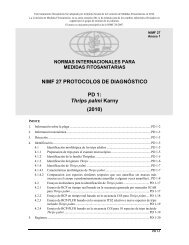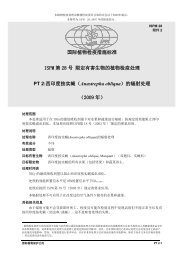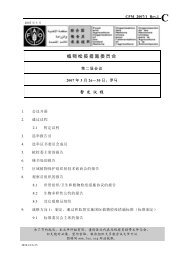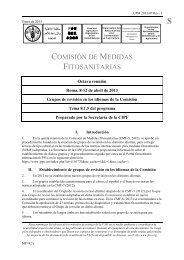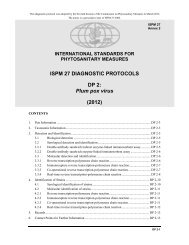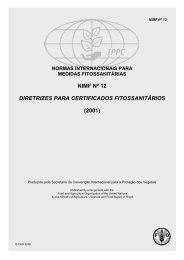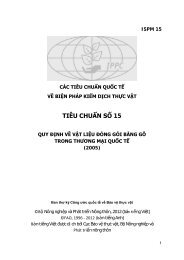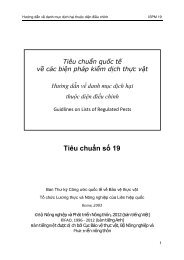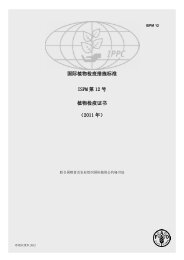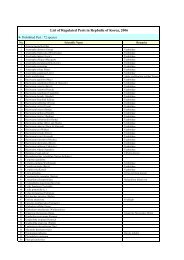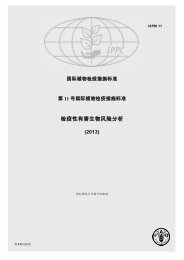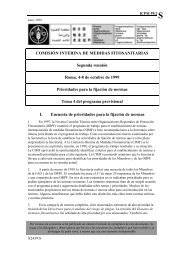Untitled
Untitled
Untitled
You also want an ePaper? Increase the reach of your titles
YUMPU automatically turns print PDFs into web optimized ePapers that Google loves.
Data can be entered into the IPP by the Official Contact Point, or by an information<br />
officer officially nominated by the IPP Contact Point. IPP Official Contact Points can liaise<br />
with the IPP manager regarding the password-protected user accounts required in order to<br />
meet their data entry needs.<br />
To support contracting parties, the IPPC Secretariat is arranging a series of regional and<br />
sub-regional workshops during 2005. The purpose of this training will be to explain national<br />
phytosanitary information exchange obligations, and to provide basic training to Official<br />
Contact Points (and/or nominated information officers) on how to use the IPP to meet these<br />
obligations.<br />
1.2 Objectives for the Regional Workshop.<br />
1.2.1 The overall objective of this workshop is to increase national capacity through training<br />
for nominated “information” officers and/or official contact points in the use of the IPP in<br />
the exchange of official information, and on how to access official information for use in the<br />
phytosanitary decision making process.<br />
1.2.2 Ensure that every ICPM Member has equal access to essential official phytosanitary<br />
information, the capability to exchange official information electronically (if allowed by the<br />
government), and to meet their obligations under the IPPC and to facilitate phytosanitary<br />
decision-making by:<br />
• Providing and facilitating access to up-to-date phytosanitary information on:<br />
o NPPOs<br />
o National requirements<br />
o ICPM<br />
o IPPC<br />
o Other RPPOs, and<br />
o Pests of potential phytosanitary importance, via internet and/or CD-ROM<br />
• Training in the exchange of official phytosanitary information, and information<br />
management for phytosanitary decision-making;<br />
• Providing access to basic technical phytosanitary information in support of the above<br />
processes; and<br />
• Providing information on the access to the FAO Biosecurity Portal (IPFSAPH)<br />
1.3 Participation<br />
Participants consisted of senior plant protection officers responsible for information<br />
exchange in the respective NPPO who already have a background in the management of<br />
phytosanitary information. 14 participants from 11 countries attended this workshop,<br />
namely Cambodia, China, Thailand, Sri Lanka, Laos, India, Nepal, Myanmar, Japan,<br />
Singapore and Malaysia (refer to Appendix 1). Also in attendance were FAO Facilitators,<br />
Mr. David C. Nowell, and Mr. Yongfan Piao. Ms Asna Booty Othman, as Project<br />
Coordinator led the workshop from Malaysia, supported by 10 officers from the Crop<br />
Protection and Plant Quarantine Division, Department of Agriculture as members of the<br />
workshop secretariat.<br />
1.4 Workshop Program – as in Appendix 2.<br />
3




